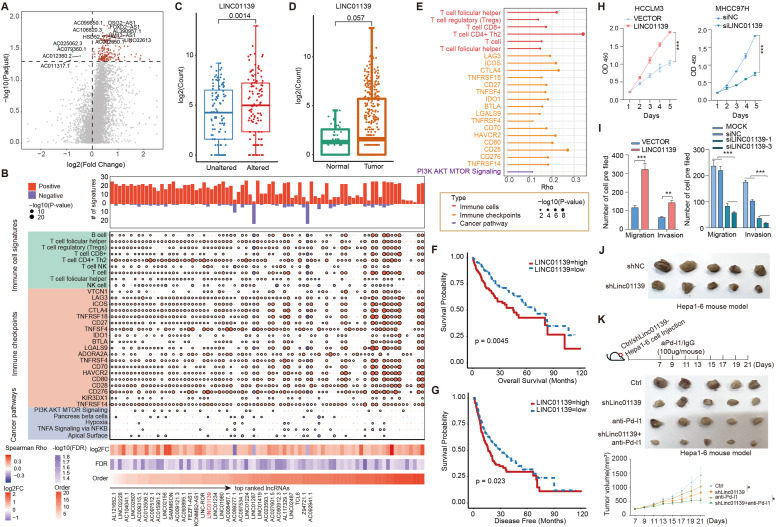
Glucose metabolism perturbations influence tumor microenvironments via LINC01139 pathway and facilitate immunotherapy in hepatocellular carcinoma


Hepatocellular carcinoma (HCC) is one of the most common tumors with high prevalence and death rate, which lacks effective targeting and immunotherapy currently. Metabolic reprogramming, which provides an inherent advantage for tumor cells to compete for nutrition, plays important roles in the development and progression of cancers.1 Increasing studies indicated that metabolic reprogramming of tumors can remodel the microenvironment through different signaling pathways and thus promote the development of tumors.2,3 In addition, long non-coding RNAs (lncRNAs) represent a subgroup of noncoding RNAs and have been shown to play extensive regulatory functions in cancer, such as signaling and immune pathways. Besides, it has been widely clarified that lncRNAs play important roles in bridging metabolic reprogramming and immunology.4 However, knowledge regarding the lncRNAs perturbed by metabolic reprogramming in HCC is still lacking. Therefore, an in-depth understanding of the downstream lncRNA pathways of metabolic reprogramming is of great significance for identifying new therapeutic targets for HCC.
